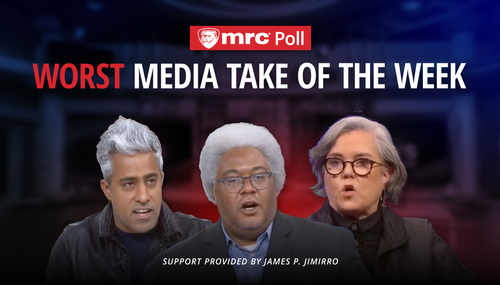The Department of Energy now believes it’s likely the COVID-19 pandemic emerged from a bio lab leak in Wuhan, China, vindicating three years of dissenting conservatives who were smeared as not only wrong but racist for advocating a theory about the origins of COVID that is now the official hypothesis of yet another government agency (the FBI agrees with DOE; other scientific agencies lean the other way).
New York Times reporter Julian Barnes got front-page play Monday with “Lab Leak Most Likely Caused Pandemic, Energy Dept. Says.”
New intelligence has prompted the Energy Department to conclude that an accidental laboratory leak in China most likely caused the coronavirus pandemic, though U.S. spy agencies remain divided over the origins of the virus, American officials said on Sunday.
The conclusion was a change from the department’s earlier position that it was undecided on how the virus emerged.
Barnes played it pretty straight, besides harping on the “low confidence” designation. (Some agencies who favor the “wet market” hypothesis also have “low confidence” in their own findings.)
Sheryl Gay Stolberg and Benjamin Mueller followed up Tuesday with a relatively even-handed explainer that tilted toward conventional wisdom that a Wuhan wildlife market, or "wet market," was the origin:
Scientists who have studied the genetics of the virus, and the patterns by which it spread, say the most likely cause is that the virus jumped from live mammals to humans -- a scientific phenomenon known as “zoonotic spillover” -- at the Huanan Seafood Wholesale Market in Wuhan, China, the city in which the first cases of Covid-19 emerged in late 2019.
But other scientists say there is evidence, albeit circumstantial, that the virus came from a lab, possibly the Wuhan Institute of Virology, which had deep expertise in researching coronaviruses. Lab accidents do happen; in 2014, after accidents involving bird flu and anthrax, the Centers for Disease Control and Prevention tightened its biosafety practices.
They admitted, “The Energy Department’s findings have given a boost to House Republicans, who are investigating the pandemic’s origins...”
Yet the relatively sober new coverage belies the paper’s initial treatment of Covidian dissenters. For years, the only acceptable position was the “wet market hypothesis” -- as if the image of the virus being spread by Chinese people eating bats was somehow less “xenophobic” than the idea that a bio lab, established by China’s authoritarian government, could have imperfect security.
The paper’s most Covidian reporter, Apoorva Mandavilli, notoriously smeared the lab-leak theory as anti-China racism on her Twitter account in May 2021:
Someday we will stop talking about the lab leak theory and maybe even admit its racist roots. But alas, that day is not today.
(It remains a shame the Times fired, at the height of the pandemic, Covid reporter Donald McNeil because some spoiled woke twerps in a summer program had it in for him.)
Mandavilli was a fount of COVID hysteria, boosting the paper’s efforts to keep schools shuttered. She was peculiarly obsessed with masks, even favoring them over vaccines.
A March 2021 Times story, cowritten by James Gorman and Julian Barnes, originally carried this headline: “Ex-CDC Director Favors Debunked Covid-19 Origin Theory." Gorman and Barnes confidently proclaimed:
The claims that the virus was created or modified intentionally in a lab were dismissed by scientists and U.S. intelligence officials.
As COVID began to shut down the world in March 2020, the paper’s coverage prioritized ideological sensitivities over health and safety. One headline: “Trump Calls It the ‘Chinese Virus.' Critics Say That’s Racist and Provocative.” The Times even declared it racist to accurately state China was the cause of the virus: “Asian-Americans have reported incidents of racial slurs and physical abuse because of the erroneous perception that China is the cause of the virus.”




